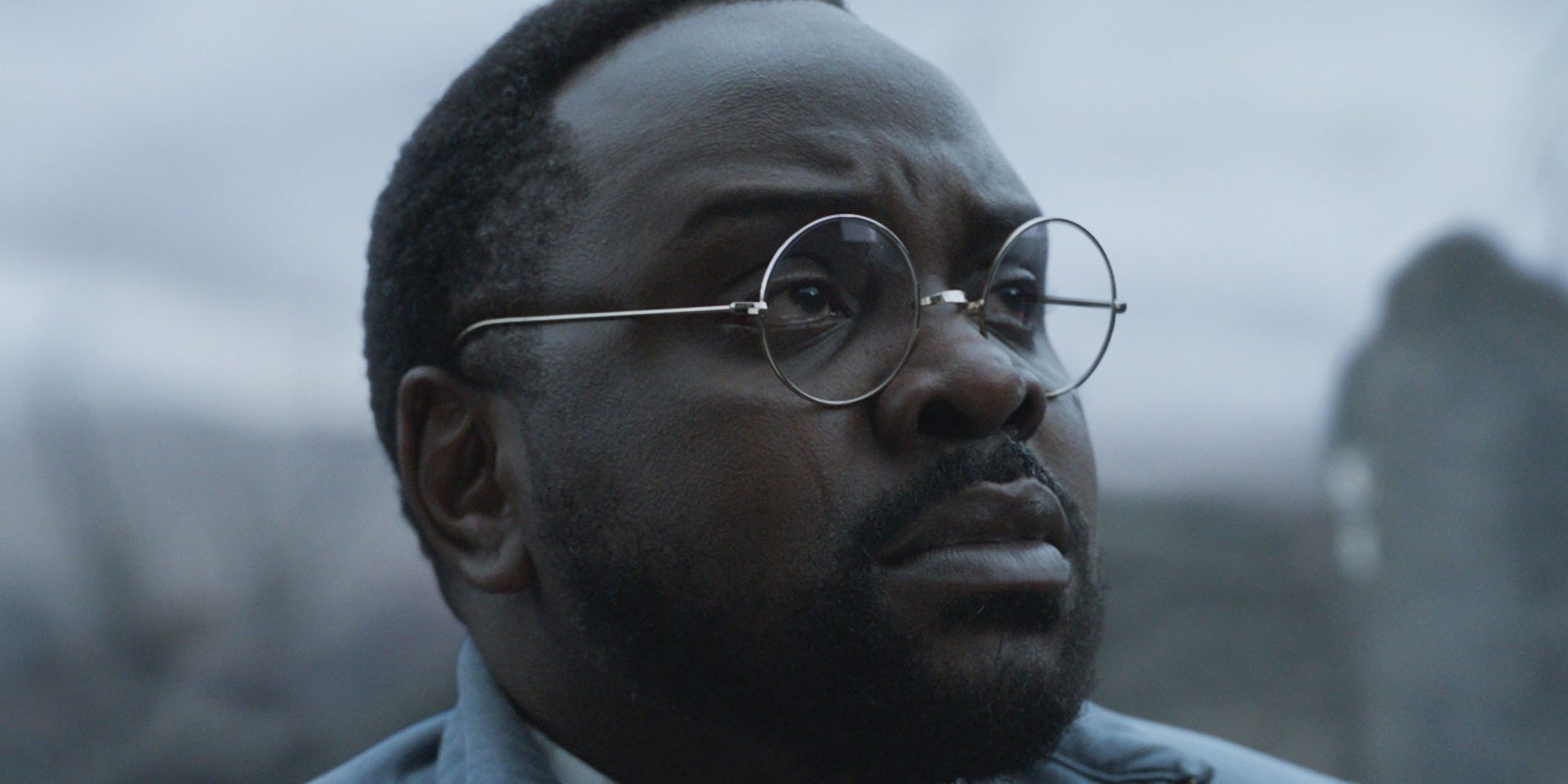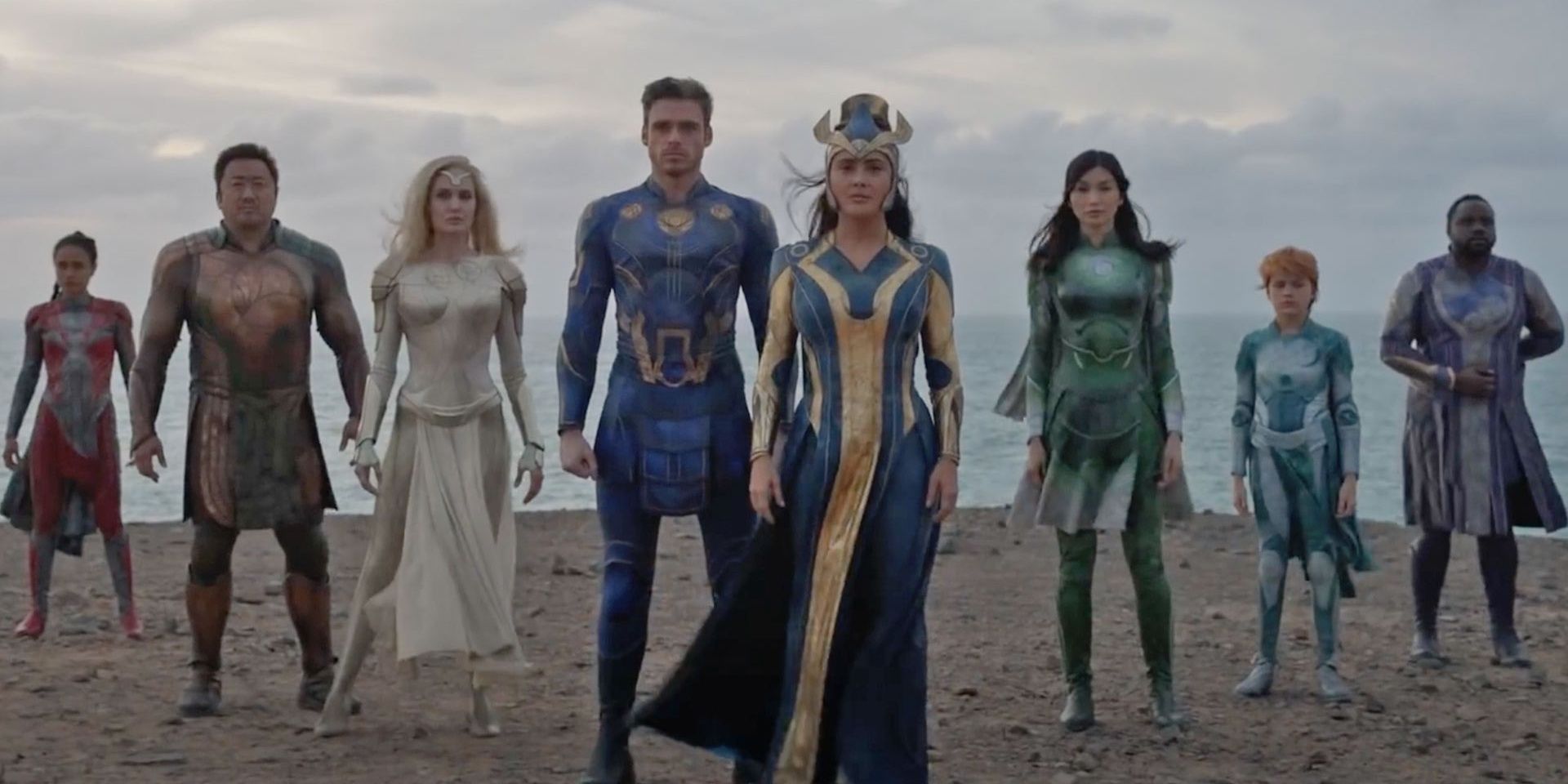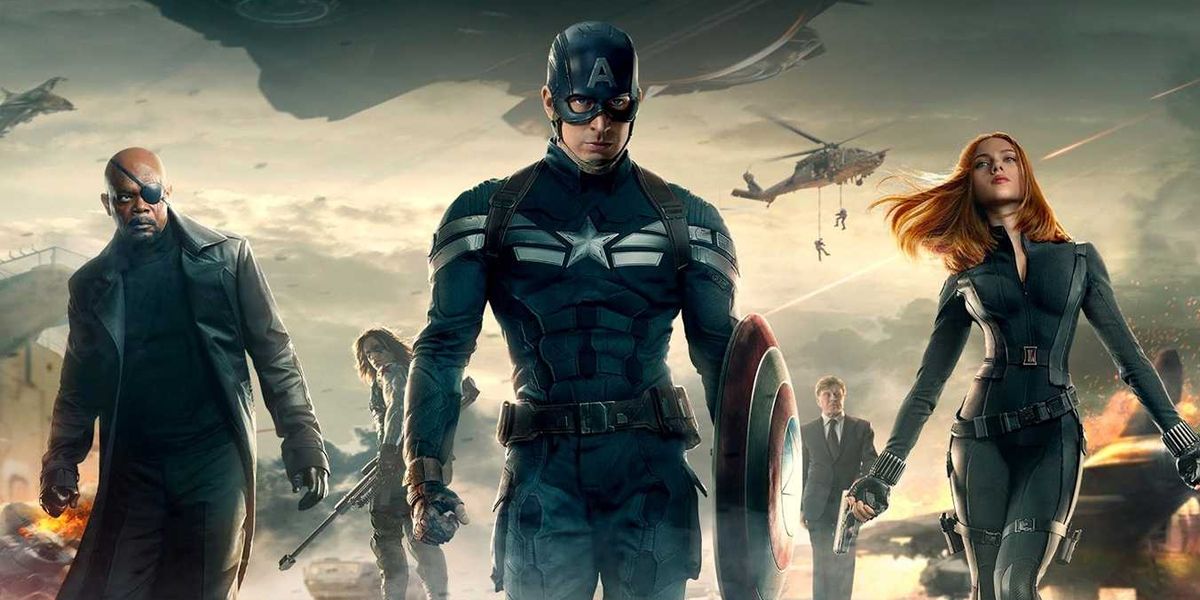The Marvel Cinematic Universe is one of the most powerful empires in cinema history, but they are far from above reproach. Above the typical criticism, a standout moment in this year's Eternals has attracted a truly staggering amount of derision, most of it for pretty good reason.
Eternals has been poorly received for a vast array of reasons, perhaps reviewing worse than any other Marvel film. The film began its negative press coverage tsunami as early as its first trailer, only picking up more and more mocking and distaste as the film was fully revealed.
It began with the second official trailer. Fans were presented with two brief shots; the first is a distant CGI recreation of an atomic bomb explosion, the second is Brian Tyree Henry's character Phastos openly weeping at the scene. A line in the trailer states that the eponymous Eternals are forbidden from interfering in human affairs, made to help from the sidelines, and advised never to engage with mankind. The most charitable reading of the scene would suggest that Phastos is heartbroken by his duty, unable to save humanity from itself. A less charitable reading would suggest the MCU was wielding a tragedy as a character's sad backstory. The take by many viewers was that Marvel's alternate history now laid the blame for one of the most violent acts in human history at the feet of a fictional character. More specifically, the MCU's first openly gay fictional character. It was a very bad look for the studio.
Technically, Phastos did not personally invent, build or detonate the atomic bombs dropped on Hiroshima and Nagasaki by the U.S. Army in 1945. Phastos is an Eternal, an immortal being with immense cosmic power who was placed on Earth to aid humankind. Phastos is the Eternal concerned with technology, he gifted humanity many important inventions, often generations before they could understand them. Subsequently, while not directly involved, Phastos' influence did enable mankind to create the Manhattan Project which created the bomb and his interference could have stopped it. His culpability is debatable; on one hand he doesn't owe it to humanity to prevent acts of war, on the other, it's unlikely mankind would have reached that grim accomplishment without his influence. Whatever blame he can be said to share in the dropping of the A-Bomb, it is inarguable that a shot of the mushroom cloud over Hiroshima followed by a shot of a character crying sends a very clear message.
This is not Marvel's first foray into difficult alternate histories. Captain America: The Winter Soldier, for example, makes a huge number of distressing claims about the MCU's political reality. That film explains that HYDRA scientist Armin Zola was brought to the U.S. after World War II as part of Operation Paperclip, the real U.S. government initiative wherein Nazi scientists were recruited to aid American efforts in the Cold War. After his induction into the newly forming S.H.I.E.L.D., Zola introduced HYDRA into a place of worldwide prominence. In the MCU, the Cuban Missle Crisis, the 1979 overthrow of the Shah in Iran, the rise of Muammar Gaddafi, and the assassination of John F. Kennedy were all the work of a shadowy underground fascist cabal. These details are arguably much more irresponsible than the implication that an alien was responsible for the atomic bomb. A secretive institution puppeteering global events from the shadows, up to and including the JFK assassination, is the textbook example of conspiracy theory that millions fall prey to, causing untold misery worldwide. So why didn't this spark the same outrage?
Creating an alternate history in which a very influential conspiracy theory is actually secretly true, and only a handful of special people know, is borderline fan-fiction for the true believers. This could be genuinely harmful to some people who could have dangerous beliefs reinforced by their favorite Hollywood blockbusters. The most obvious reason this flew under the radar is that it was a massive twist, buried over halfway into the film. Marvel put their newest uncomfortable in-universe historical detail in a trailer and made it an important character moment. Phastos is fundamentally changed by the results of his actions, vowing never to use his powers after seeing what man could do with them.
Perhaps another reason for the newfound outrage is the framing. Blaming a movie's already comically evil villains for yet more evil doesn't have the same impact as blaming a sympathetic hero for an act of war. Amplifying that is the fact that Phastos is a groundbreaking character, the first openly gay MCU hero. Some fans felt he was an example of tokenism, blaming him for the atomic bomb did not help those accusations. Phastos is an enjoyable character, the narrative needed a voice to question the ills of humanity and he does that very well. The trouble is taking over a very real tragedy, the impact of which is still tangible today, and fabricating absurd backstory around an otherwise great character.
The lesson from this should be clear, Marvel and superhero media, in general, must be very careful when they incorporate real history into the fiction. Many great superheroes wouldn't exist without real history in their story, but if the creators are careless, they risk confirming dangerous beliefs or earning a worldwide rebuke.



